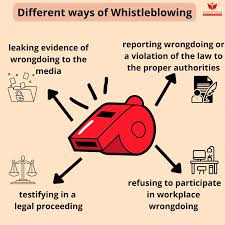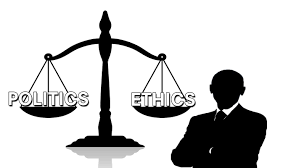Understanding Political Ethics in the USA
Political ethics play a significant role in how the United States government functions and ensures fair practices for its citizens. In this blog, we’ll break down what political ethics are, why they matter, and how they affect government officials and the public. Let’s explore this topic in simple terms to help you better understand the importance of ethics in politics.
What Are Political Ethics?
Political ethics are the moral standards and principles that guide the behavior of people involved in politics, especially government officials. These rules help ensure that politicians act in ways that are honest, fair, and good for the public. When we talk about political ethics, we’re asking how politicians should behave in office. It involves making decisions that benefit everyone, not just a select few.
In the United States, political ethics are necessary to keep the system balanced and trustworthy. Without strong ethics, corruption can spread, and trust in government can disappear. Ethics guide actions in areas like campaign funding, lobbying, and decision-making.
Why Political Ethics Matter
Political ethics are important because they help maintain trust between the public and the government. If citizens believe that their leaders are honest and transparent, they will feel more comfortable with how decisions are made. On the other hand, when politicians act unethically, it leads to mistrust, and people may lose faith in the democratic process.
In the USA, there have been many examples of ethical problems in politics. Scandals involving illegal activities, bribery, and misuse of power damage the public’s confidence in their elected leaders. This is why having clear guidelines about what is right and wrong in politics is so important.
Political ethics also help prevent conflicts of interest. When politicians are involved in situations where they can benefit personally, they may make decisions that aren’t best for the public. Ethical standards help to keep these conflicts in check and ensure decisions are made for the right reasons.
Key Areas of Political Ethics in the USA
Political ethics cover a variety of important areas, including campaign finance, lobbying, and conflict of interest. Let’s take a look at each one.
- Campaign Finance: This refers to how politicians raise money for their campaigns. Ethical issues arise when money influences political decisions. In the USA, there are laws that limit how much individuals and organizations can donate to campaigns. These laws are in place to prevent big donors from having too much control over politicians.
- Lobbying: Lobbyists are individuals or groups who try to influence government decisions. While lobbying is legal, it can become unethical when it leads to favoritism or when politicians make decisions that benefit lobbyists over the public. Strict regulations are needed to ensure that lobbying remains transparent and doesn’t interfere with fair decision-making.
- Conflicts of Interest: A conflict of interest happens when a politician’s personal or financial interests clash with their public duties. For example, a politician owning stock in a company that benefits from new laws could be a conflict. Ethical guidelines help ensure that politicians are working for the good of the people, not for personal gain.
Political Ethics and Corruption
Corruption is one of the biggest challenges to political ethics. Corruption occurs when government officials misuse their power for personal gain. This can take many forms, such as accepting bribes, awarding contracts to friends, or using public funds for personal projects. Corruption erodes public trust and weakens democratic systems.
In the United States, there are several laws and agencies in place to prevent corruption. The Federal Election Commission (FEC) monitors campaign finance, while the Office of Government Ethics (OGE) oversees conflicts of interest in the executive branch. These bodies help to ensure that ethical standards are followed.
However, despite these regulations, corruption can still occur. It is up to the public, the media, and watchdog organizations to hold politicians accountable. Transparency and accountability are key in ensuring that corruption is identified and dealt with swiftly.
The Role of Whistleblowers in Political Ethics

Whistleblowers play a vital role in maintaining political ethics. A whistleblower is someone who reports illegal or unethical actions within the government or other organizations. These individuals help expose wrongdoing that might otherwise go unnoticed.
In the USA, there are laws to protect whistleblowers from retaliation. The Whistleblower Protection Act, for example, ensures that government employees who report unethical behavior are not punished. This helps encourage transparency and allows unethical actions to be addressed.
Whistleblowers have brought attention to numerous political scandals, from illegal wiretapping to financial misconduct. Without their courage, many of these actions would have continued unchecked. Whistleblowers help keep the political system honest by exposing corruption and unethical behavior.
The Impact of Unethical Political Behavior on Society
When politicians behave unethically, it has far-reaching consequences. Trust in government declines, and people may become disengaged from the political process. Unethical actions also lead to unfair policies that benefit a few while harming the majority.
For example, if a politician accepts a bribe to support a specific law, that law might benefit the person or group who paid the bribe but hurt ordinary citizens. This undermines democracy because laws should be made to benefit everyone, not just those who can afford to pay for influence.
Unethical behavior in politics can also lead to economic problems. Corruption can scare away investors and create an environment where businesses are afraid to operate. This can hurt the economy and reduce opportunities for everyday people.
Promoting Strong Political Ethics
Promoting strong political ethics requires a combination of education, regulation, and enforcement. People need to understand why ethics matter and how unethical behavior can harm society. Education can start in schools, where children learn about the importance of honesty, fairness, and responsibility.
Regulation is also key. Laws that set clear guidelines for campaign finance, lobbying, and conflicts of interest help prevent unethical behavior. It is important for these laws to be updated regularly to address new challenges.
Finally, enforcement is critical. Watchdog organizations, the media, and the public all play a role in holding politicians accountable. Government agencies like the Office of Government Ethics and the Federal Election Commission must have the resources they need to investigate wrongdoing and enforce penalties for unethical actions.
Conclusion
Political ethics are not just for politicians—they matter for everyone. A strong ethical system ensures that the government works fairly and effectively for all citizens. Without ethics, corruption, and self-interest can take over, harming society.
By promoting transparency, accountability, and fairness, political ethics help maintain trust in government and protect democracy. It is up to both citizens and leaders to work together to uphold ethical standards and create a better future for everyone.










